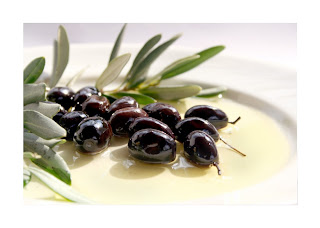Monday, March 16, 2009
Health Habits
Tuesday, March 10, 2009
Fat-- healthy?
- provide needed energy
- allow you to absorb vitamins A,D,E,K and prevent deficiencies in these vitamins
- helps food to stay in the stomach longer, giving a greater sense of satisfaction and preventing hunger soon after meals
- may help your body produce endorphins (the substances that make you feel good)
- provide flavor and texture to help prevent food from being bland and dry
- compose 60% of the brain and are essential to brain function, including learning abilities, memory retention and moods. Fats are especially important for pregnant women, since they are integral to fetal brain development.
But before you go out and start justifying the three Big Mac meal you just bought from McDonald's, you have to realize that like anything, some are just better than others. So which fats are the best? Here are some over views of fats from helpguide.org.
Trans
-Trans fats are created by heating liquid vegetable oils in the presence of hydrogen gas, a process called hydrogenation. Partially hydrogenating vegetable oils makes them more stable and less likely to spoil, which is very
 good for food manufacturers – and very bad for you.
good for food manufacturers – and very bad for you.-Primary sources of trans fat are vegetable shortenings, some margarines, crackers, candies, cookies, snack foods, fried foods, baked goods, and other processed foods made with partially hydrogenated vegetable oils.
-Trans fat raises low-density lipoprotein (LDL or "bad") cholesterol that increases your risk of coronary heart disease (CHD), as well as lowering HDL, or good cholesterol.
Saturated
-usually solid at room temperature and have a high melting point
-primary sources are animals including red meat and whole milk dairy products as well as tropical vegetable oils such as coconut, palm and foods made with these oils
-saturated fat raises low-density lipoprotein (LDL or "bad") cholesterol that increases your risk of coronary heart disease.
Un Saturated
- Monounsaturated
 -liquid at room temperature and turn cloudy when kept in refrigerator.
-liquid at room temperature and turn cloudy when kept in refrigerator.-primary sources: plant oils- like canola, peanut, and olive oil. Other good sources include
avocados, nuts, and seeds
-many who follow a traditional Mediterranean diet have foods high in monounsaturated
fat and tend to have lower risk of cardiovascular disease
- Polyunsaturated
-liquid at room temperature as well as at cold temperature
-primary sources are sunflower, corn, soybean, and flaxseed oils and also found in foods such as walnuts and fish.
-this fat family includes the Omega-3 group of fatty acids which your body can't make and are found in very few foods
Thursday, March 5, 2009
Breakfast and the rest of the meals

Some ideas/ways that we can remember to eat breakfast include:
• Start Small. If your not a breakfast eater, begin with whole wheat toast and/or a piece of fruit. In a few days, add more food.
• Choose Fruit for Breakfast. Fruit gives you fiber. Fresh fruit is the best choice. There are many to choose from: oranges, grapefruits, apples, bananas, grapes, kiwis, mangos, melons, berries. Eat two servings of fruit every morning. Canned fruit packed in juice is also a good choice. Add dried fruit to your cereal.
• Eat High Fiber Hot Cereal. Hot cereal is the best choice, but there are several brands of cold cereal on the market that are high in fiber and low in sugar. Oatmeal is a favorite hot cereal. Try a seven grain cereal and experiment with different grains such as millet, brown rice, quinoa, corn grits for a variety. Try cooking grains in a crock pot overnight and it’s already the next morning. Or cook up a large batch and re-heat the next day. Make your own granola. Add a high fiber cereal to your favorite low fiber cereal. Gradually increase the amount of the high fiber cereal and decrease the amount of the low fiber cereal. For example, if you like cornflakes, add Wheat Chex to the cornflakes. Each morning add a little more Wheat Chex and a little less Cornflakes.
• Choose Whole Grain Bread. Eat two slices of toast in the morning or a whole grain bagel. Spread with fruit spread or applesauce or your favorite nut butter.
• Make Healthy Pancakes or Waffles. Have you ever considered topping your pancakes or waffles with fruit?
• Instead of scramble eggs try scrambled tofu. You’re in for a great surprise.
• The sky’s the limit. The only limitation is your imagination. Make it a priority. Eat breakfast.
Sunday, March 1, 2009
I don't need to-- I exercise

Although some can still manage to have a slim physique because they run a lot, or have a "fast metabolism" that should be no excuse to not eat healthy. Nutrition isn't important just to look good, but to feel good and is a great way to compliment your exercise routine--in fact eating well should be even more incentive as you will probably need an increased intake of carbohydrates and protein.
About.com discusses ways that you can get this extra needed nutrition and outlines it by when normally do your work outs. For example, if you like to work out in the mornings it suggests that you try eating, bagels, raisins, bananas, or a liquid meal like a sports drink.

Other things to take into consideration are the extra hydration that you will need. The American College o
 f Sports Medicine (ACSM) suggests that when you work out you need more water and you need to drink around 16 oz of water two hours before your workout for optimum performance and sip water throughout your program.
f Sports Medicine (ACSM) suggests that when you work out you need more water and you need to drink around 16 oz of water two hours before your workout for optimum performance and sip water throughout your program.